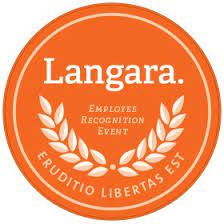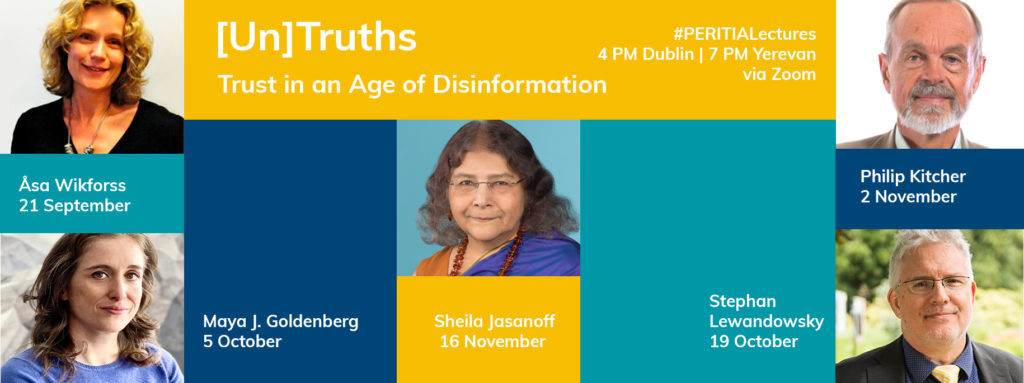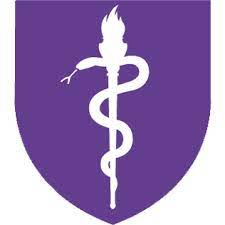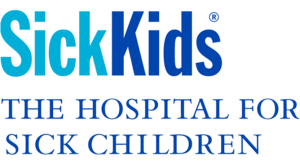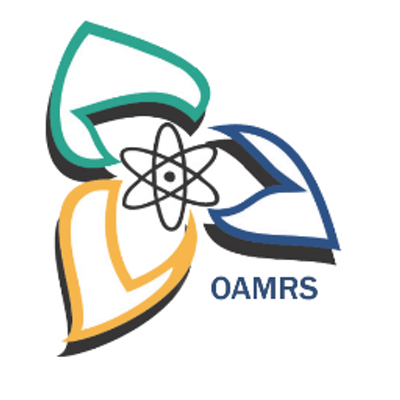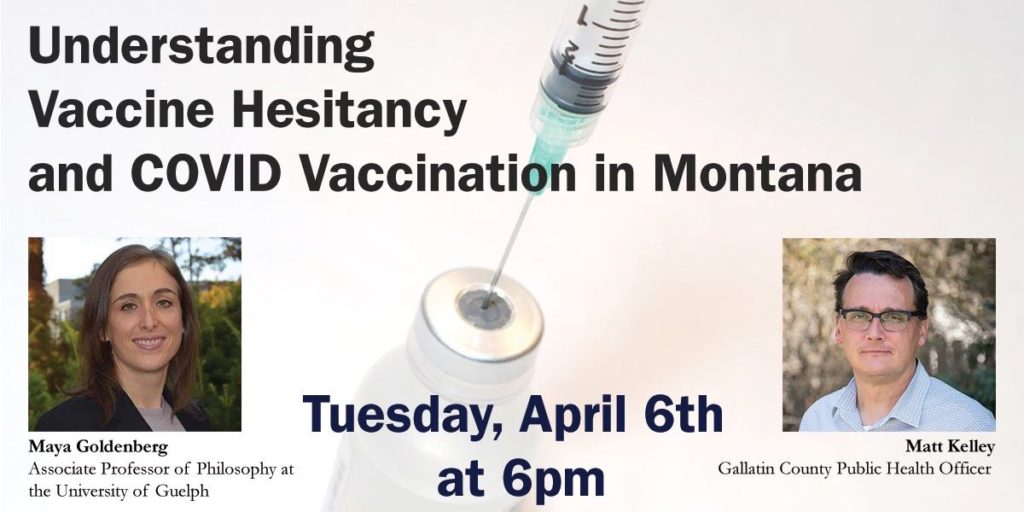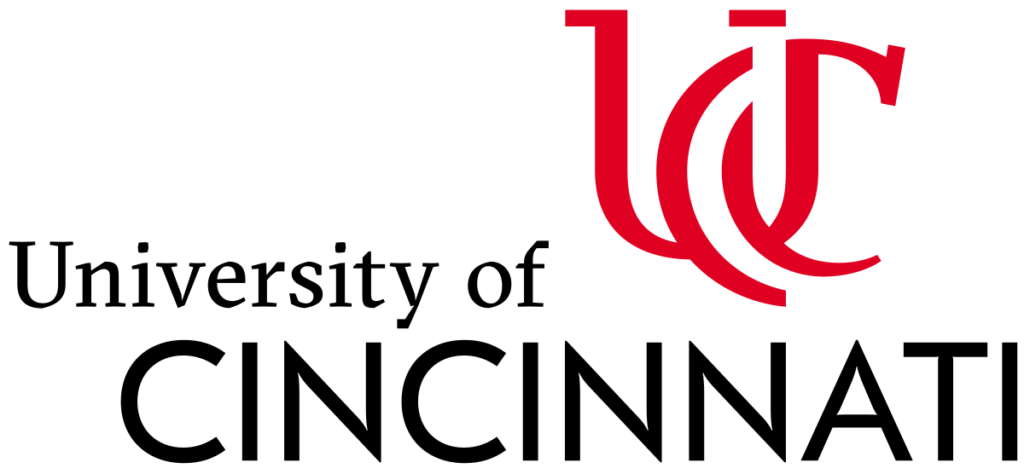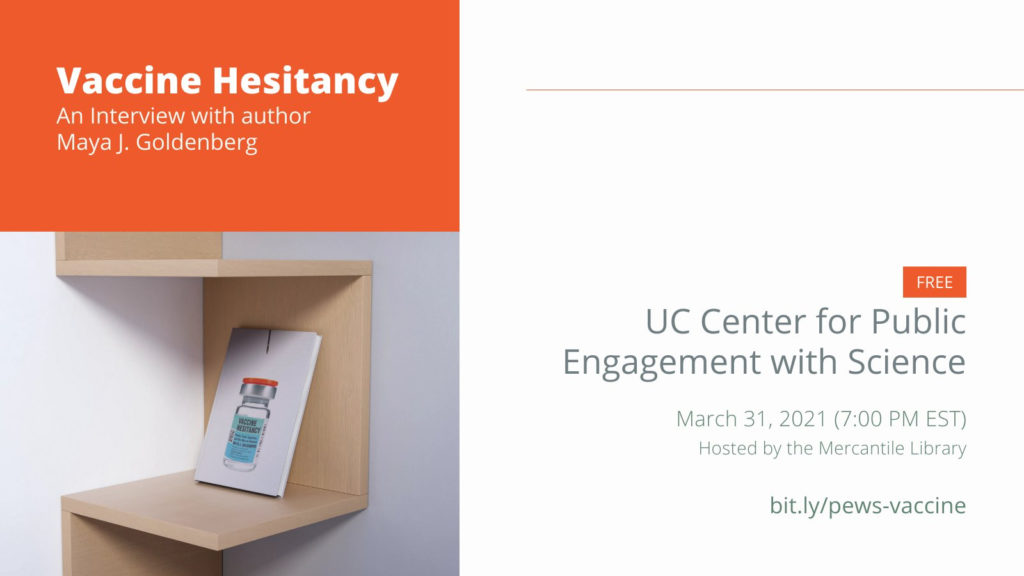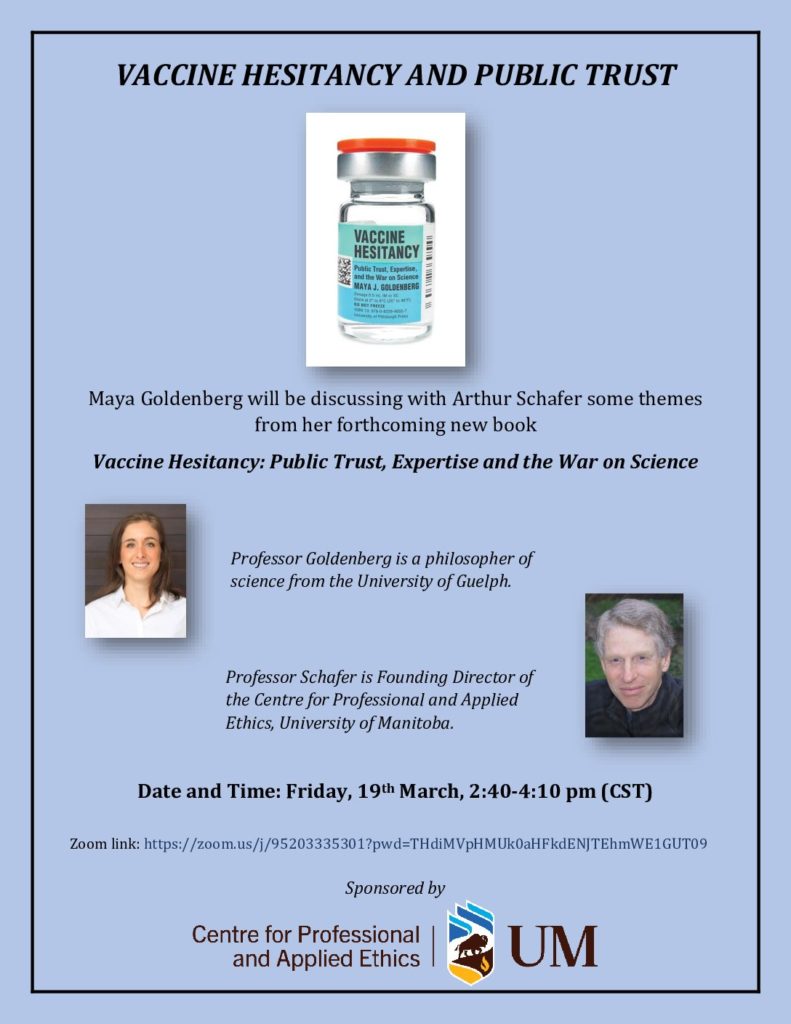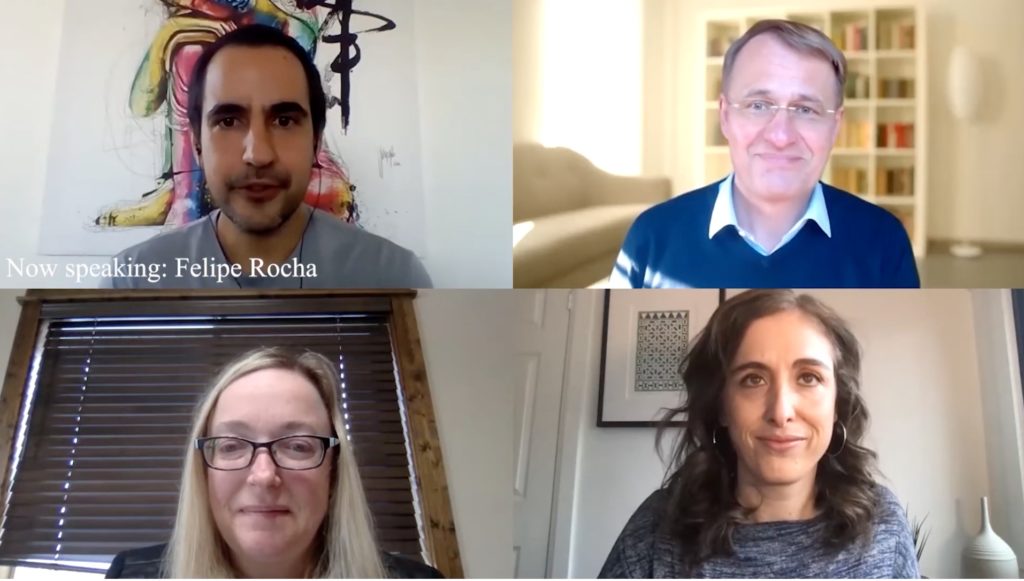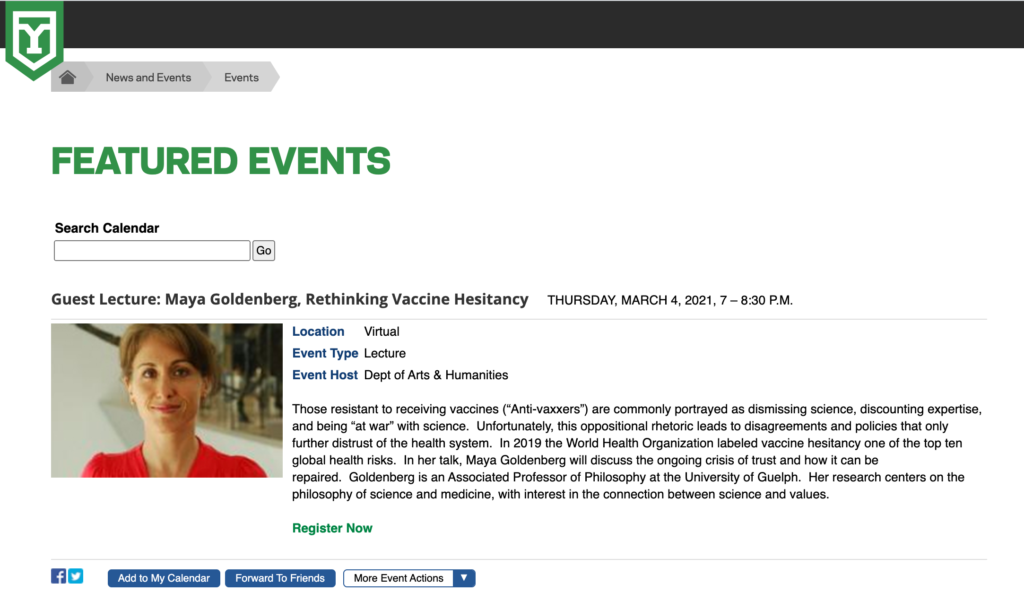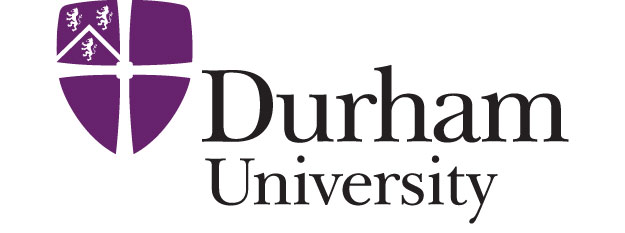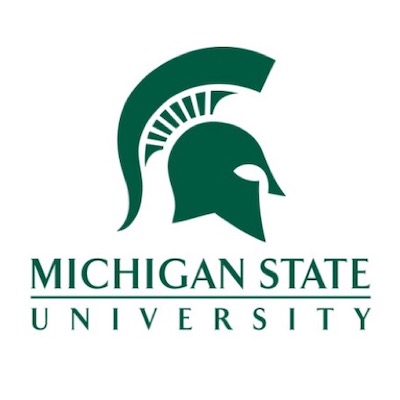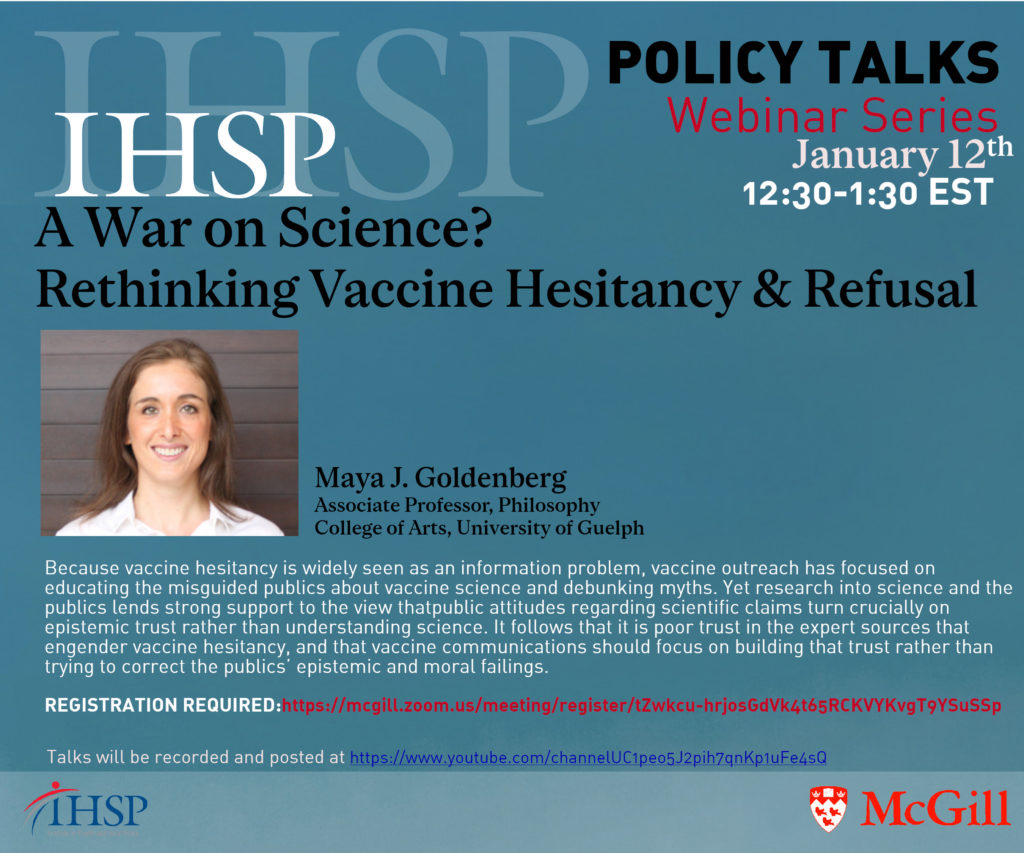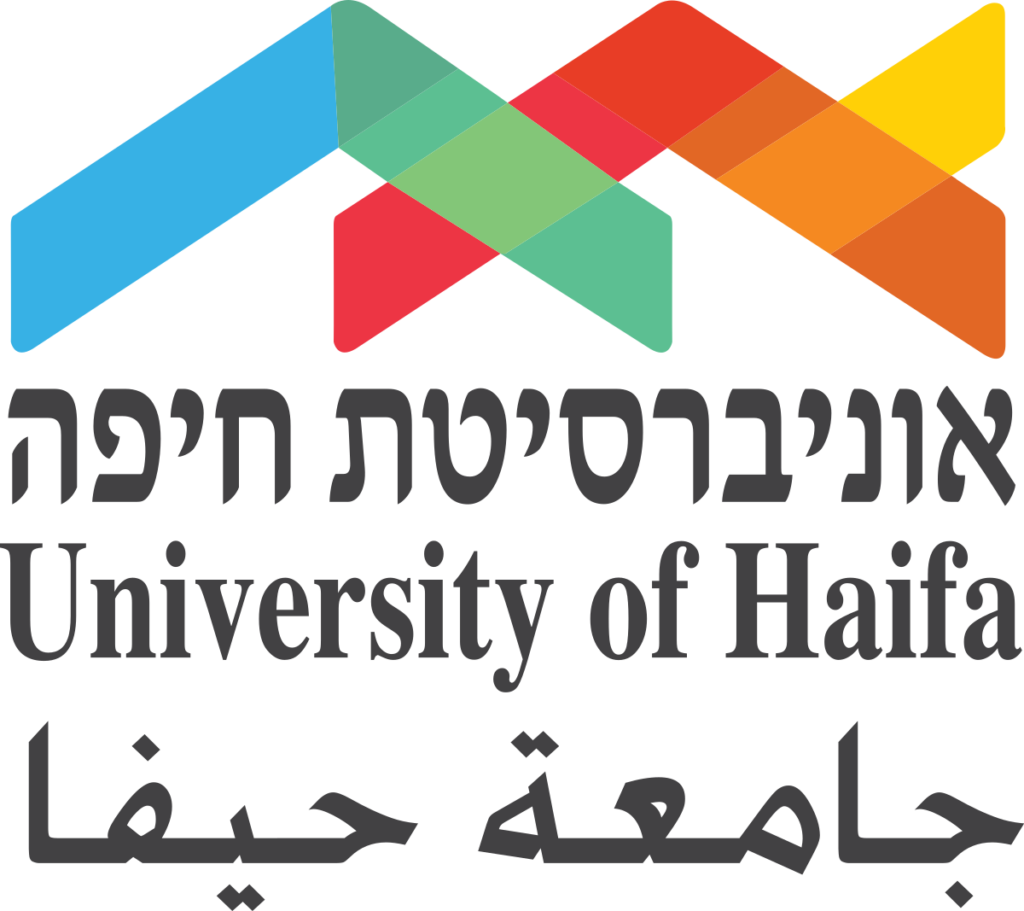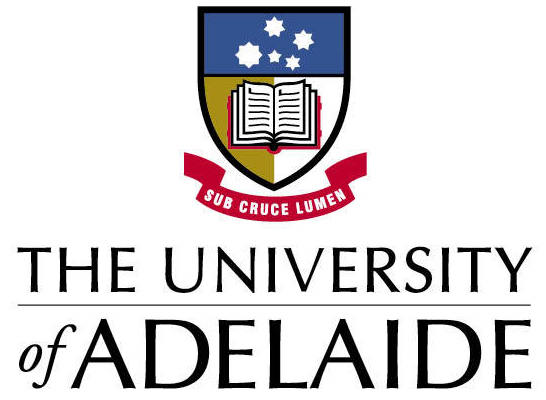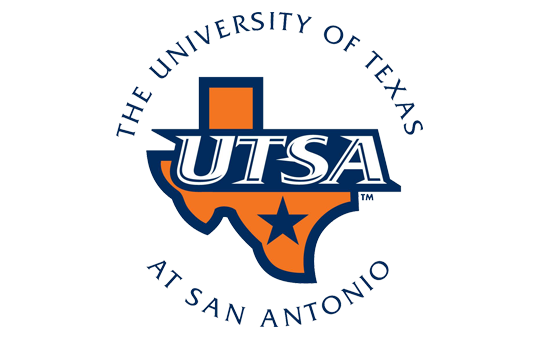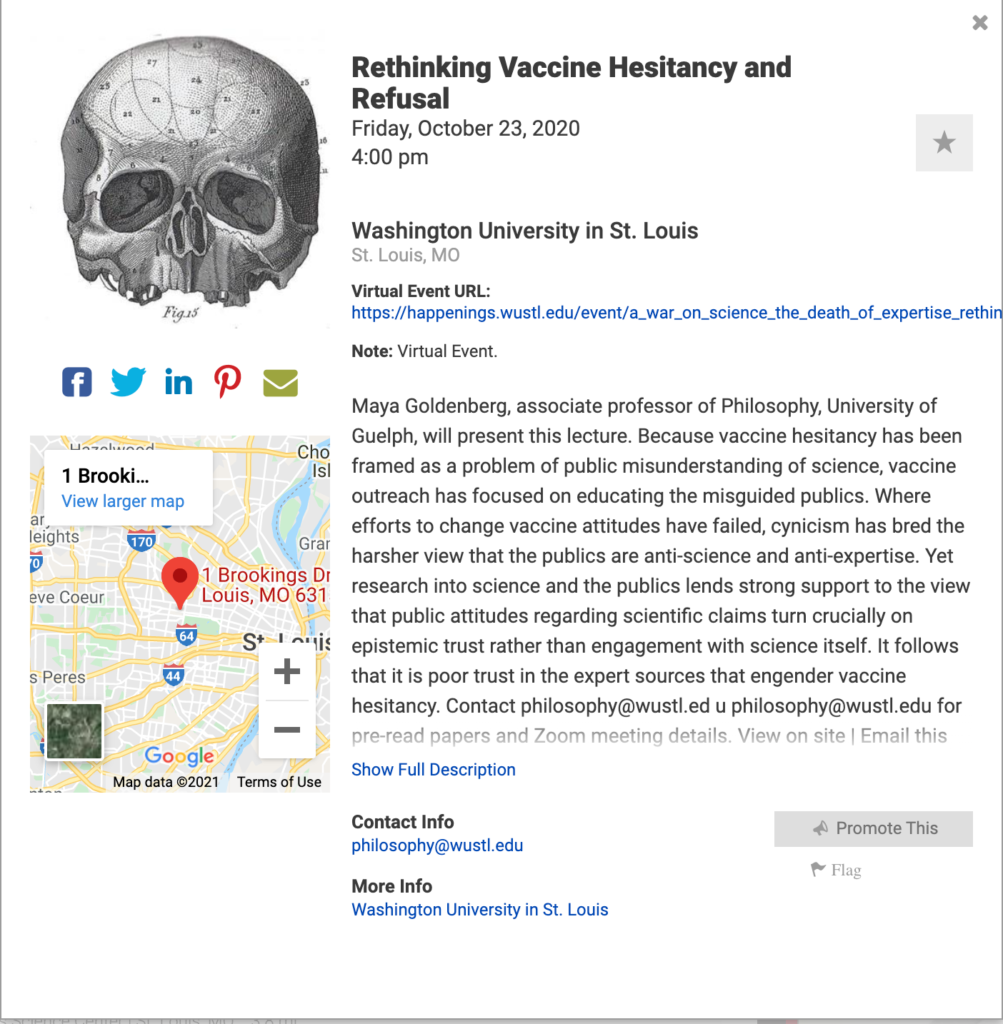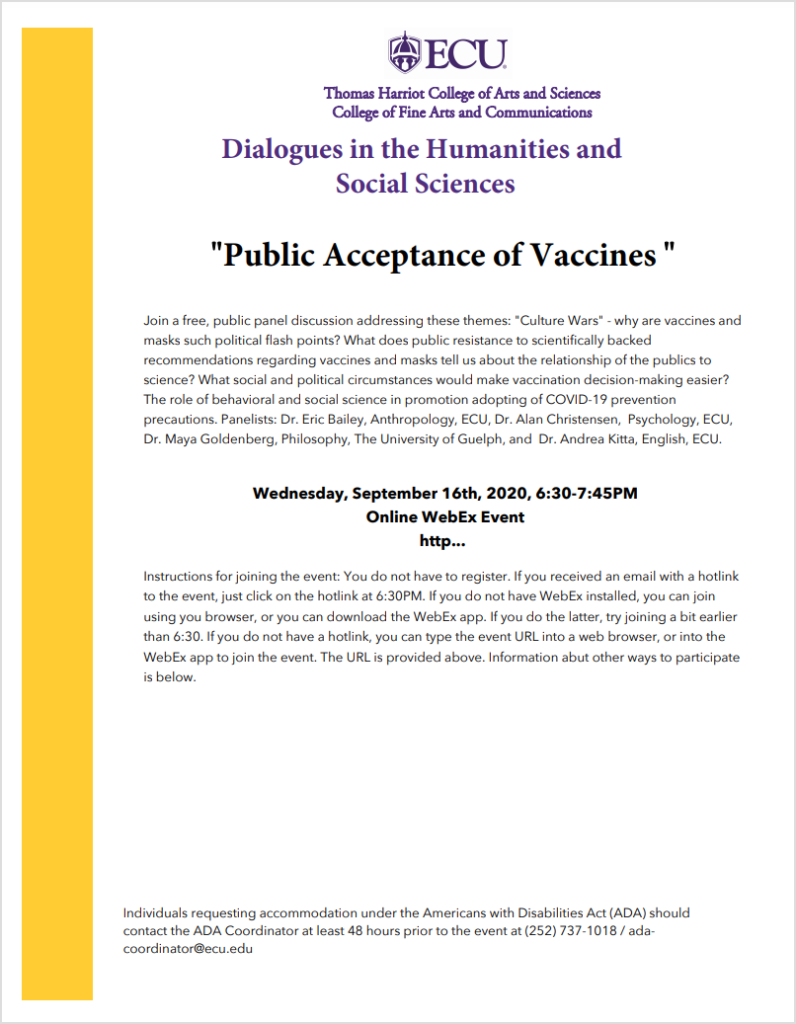Publications
Past Book Tours
** Note for Publications use H5 to separate sections as per mockupA conversation with Dr. Arthur Schafer about themes from Maya Goldenberg’s new book Vaccine Hesitancy: Public Trust, Expertise and the War on Science.
Those resistant to receiving vaccines ("Anti-vaxxers") are commonly portrayed as dismissing science, discounting expertise, and being "at war" with science. Unfortunately, this oppositional rhetoric leads to disagreements and policies that only further distrust of the health system. In 2019 the World Health Organization labeled vaccine hesitancy one of the top ten global health risks. In her talk, Maya Goldenberg will discuss the ongoing crisis of trust and how it can be repaired. Goldenberg is an Associated Professor of Philosophy at the University of Guelph. Her research centers on the philosophy of science and medicine, with interest in the connection between science and values.
Because vaccine hesitancy has been framed as a problem of public misunderstanding of science, vaccine outreach has focused on educating the misguided publics. Where efforts to change vaccine attitudes have failed, cynicism has bred the harsher view that the publics are anti-science and anti-expertise. Yet research into science and the publics lends strong support to the view that public attitudes regarding scientific claims turn crucially on epistemic trust rather than engagement with science itself. It follows that it is poor trust in the expert sources that engender vaccine hesitancy. This consideration redraws the lines of responsibility, where vaccine hesitancy signals a problem with scientific governance rather than a problem with the wayward publics. In order to improve vaccine communications, we should focus on building that trust rather than educating the misinformed publics or puzzling over the moral and epistemic failings of the publics. Doing this does not discount that public health agencies have the science on their sides. It does mean recognizing that the best science is not enough to ensure public uptake of health recommendations.
Because vaccine hesitancy is widely seen as an information problem, vaccine outreach has focused on educating the misguided publics about vaccine science and debunking myths. Yet research into science and the publics lends strong support to the view that public attitudes regarding scientific claims turn crucially on epistemic trust rather than understanding science. It follows that is poor trust in the expert sources that engender vaccine hesitancy, and that vaccine hesitancy, and that vaccine communications should focus on building that trust rather than trying to correct the publics epistemic and moral failings.
Free, public panel discussion addressing these themes: "Culture Wars" - why are vaccines and masks such political flash points? What does public resistance to scientifically backed recommendations regarding vaccines and masks tell us about the relationship of the publics to science? What social and political circumstances would make vaccination decision-making easier? What role can the social and behavioral sciences play in the COVID-19 response. Panelists: Dr. Eric Bailey, Anthropology, ECU, Dr. Alan Christensen, Psychology, ECU, Dr. Maya Goldenberg, Philosophy, The University of Guelph, and Dr. Andrea Kitta, English, ECU.

